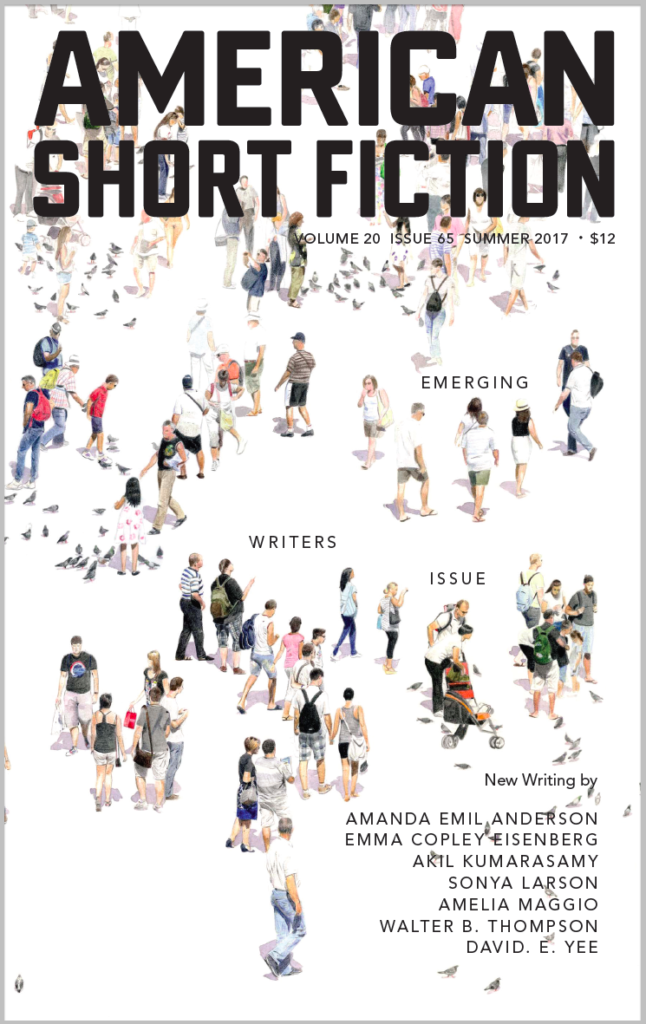“At Ray’s Birthday Bar, we specialize in birthdays. A free shot if you can show me a driver’s license that proves it’s your day, two free ones if the address on said license is South Philadelphia, and if you’re a lifer with ten years of loyal patronage, the number’s three, and Ray will turn on the disco ball. I read somewhere that you have to get twenty-three people in the same room before there is a fifty percent chance that two of them will have the same birthday. Here the odds are much better.”
—
“We held a party at our house the first weekend in June to welcome the frog man, Samuel F. Burgunder. The party was my husband’s idea. It was essential, he’d told me, for his newest zookeeper to feel at home with his new ‘family.’ I suspected that what my husband truly wanted was to show the world he wasn’t dead. Caldwell Morton had once been the most famous zoologist in America, perhaps the world. The last thing he could do was show weakness, especially in front of the people who took care of the only asset he had left: Rock Island Zoo. For the big occasion, he studied two inhalers in the pockets of his white linen suit and insisted I wear my strapless blue-green dress. He needed to stand up straight with his wife—still unquestionably in her forties, still smiling, still by his side. Just like the Caldwell and Polly of old. I didn’t mind. I would have worn the dress anyway.”
—
“When I was dying, people were nicer to me. Nurses washed my hair. Old teachers and old roommates and total randoms came to see me, kissing my bandaged hand. Bao brought me underwear and slept beside me on a chair. Mom flew from Philly, Dad from North Dakota, and Sui from Xian, all the way across the planet. The flowers! The questions! What hurts? How much? I was scared and they wanted to hear all about it. No one said, Why? or How come? or How could you? No one rolled their eyes or said, Well I’d better get going. They didn’t let me smoke, but I saw them mull it over, as if to say, Well it isn’t going to kill her. They leaned forward. They were riveted. They were hungry and I was their food.”
—
“When I was old enough to gossip but not old enough to drive, my mother often brought me to The Leaf House: Tearoom and Café. Inside, my friends and I sat on cushioned seats. We sipped candy teas. We ordered petite pastries, all decorated to resemble flowers at the height of their sugary bloom. The decor was a hodgepodge of Japanese lighting, Native American wall hangings, and English table settings. The color scheme was the kind one might associate with elves. I believe we were familiar faces there. The unearned friendliness of the baristas made it difficult to be sure.”
—
“By night you are Thankful Goodnow, illegitimate daughter of a convicted Salem witch. You roam the halls of Goodnow Inn with a historically accurate cotton skirt billowing about your ankles. You rap softly on doors and disappear before anyone can answer. When the moon is high, you drag a canvas drop cloth across the attic floor, the scratching sound echoing heavy and strange to the bedrooms below.
By night you are a ghost.”
—
“When I surface, I fold my blazer over the edge of the tank, rip the left sleeve off my dress shirt, and use it to tie the mass of my hair behind my head. The shoulder of the linen had been torn in my fall, so I don’t mind ruining the garment, but I shouldn’t have forgotten my hair ties, not for a formal gig. This is after I’ve coughed the night-thick water from my stomach, that final heave like vomiting. Then I sink, forearms holding me to the lip of the glass walls that form a square around me, ten by ten, transparent but sturdy, like the bulletproof slabs bank tellers work behind. For a moment, I can recall the sensation of being in a pool early in the season, how you have to descend into the water for warmth. I blink my eyelashes dry, and by this time Benji has heaved out his minestrone in the tank adjacent to mine. I stand and say, ‘Tell me I’m pretty.’ And he chuckles, ‘Tell me I’m fun.’”
—
“The butcher sat with both his hands folded on the dinner table. It was the beginning of December, and he wore a tweed jacket and a white collared shirt. He had arrived without a hat or gloves, and Nalini had cried out from the doorway, ‘A butcher doesn’t have enough fat in him for this cold.’ She grinned and held his frozen hands, leading him inside.”
 Emma Copley Eisenberg, “Ray’s Birthday Bar”
Emma Copley Eisenberg, “Ray’s Birthday Bar”